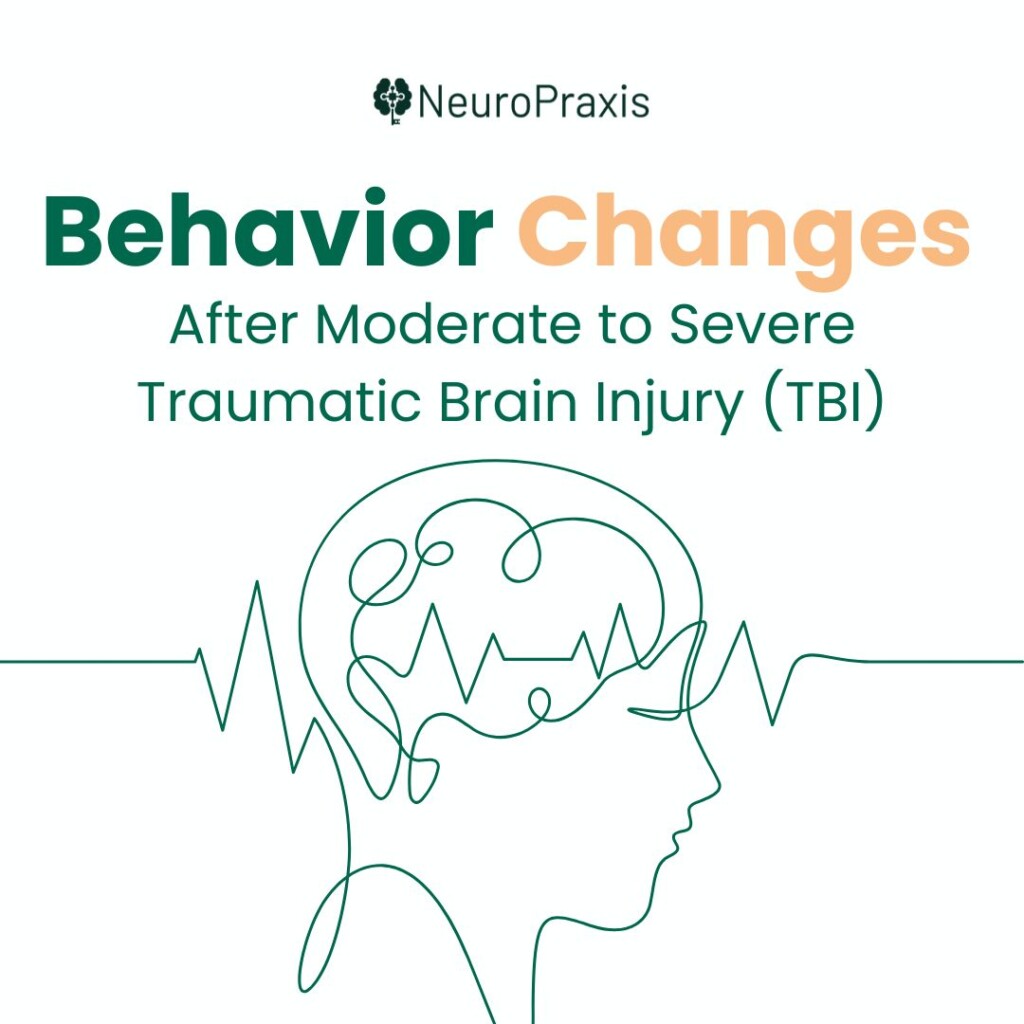Traumatic brain injury (TBI), particularly moderate to severe cases, often leads to significant behavioral changes that impact both survivors and their caregivers. These changes can range from emotional instability to cognitive challenges, requiring tailored strategies for management. In this blog, we explore the causes, common symptoms, and evidence-based approaches to navigating post-TBI behavioral changes.
Why Do Behavior Changes Occur After TBI?
Moderate to severe TBI disrupts brain function, affecting regions responsible for emotional regulation, impulse control, and decision-making. Damage to the frontal lobe, for instance, may lead to impulsivity or aggression, while injury to the limbic system can cause mood swings or depression. Chemical imbalances and physical trauma further exacerbate these changes.
Common Behavioral Changes Post-TBI
- Emotional Instability: Anxiety, depression, and rapid mood swings are frequently reported. Survivors may also experience apathy or emotional flatness.
- Impulsivity and Aggression: Reduced inhibition can lead to outbursts, irritability, or verbal/physical aggression.
- Cognitive Challenges: Poor concentration, difficulty multitasking, and memory lapses are common.
- Social Withdrawal: Loss of interest in social activities or strained relationships due to personality shifts.
- Persistent Issues: In severe cases, these changes may persist for years, especially in children.
Managing Post-TBI Behavioral Changes: 5 Evidence-Based Strategies
- Structured Routines: Predictable schedules reduce confusion and anxiety.
- Positive Behavior Support (PBS): Focus on reinforcing desired behaviors through rewards and environmental adjustments.
- Professional Therapies:
- Cognitive Behavioral Therapy (CBT): Addresses emotional regulation and negative thought patterns.
- Occupational Therapy: Improves daily functioning and coping strategies.
- Caregiver Education: Training families to recognize triggers (e.g., overstimulation) and respond calmly.
- Medication Management: In some cases, antidepressants or mood stabilizers may be prescribed under medical supervision.
The Role of Time and Support
While behavioral changes can be daunting, many survivors experience gradual improvement with time. Early intervention and a strong support network—including neurologists, therapists, and support groups—are critical.
FAQs About TBI Behavior Changes
Q: Can personality changes after TBI be permanent?
A: While some changes may persist, rehabilitation and therapy often help individuals adapt and improve.
Q: How can caregivers cope with aggression in TBI survivors?
A: De-escalation techniques, such as maintaining calm communication and avoiding confrontations, are recommended.
Q: Are children more vulnerable to long-term behavioral effects?
A: Yes, pediatric TBI survivors may face prolonged cognitive and emotional challenges, requiring specialized care.
Key Takeaways
- Behavioral changes after TBI stem from physical and chemical brain damage.
- Symptoms vary but often include emotional dysregulation, impulsivity, and cognitive deficits.
- Multidisciplinary care, patience, and adaptive strategies are essential for recovery.
For more resources, consult organizations like the Brain Injury Association of America (BIAA) or Headway UK.

